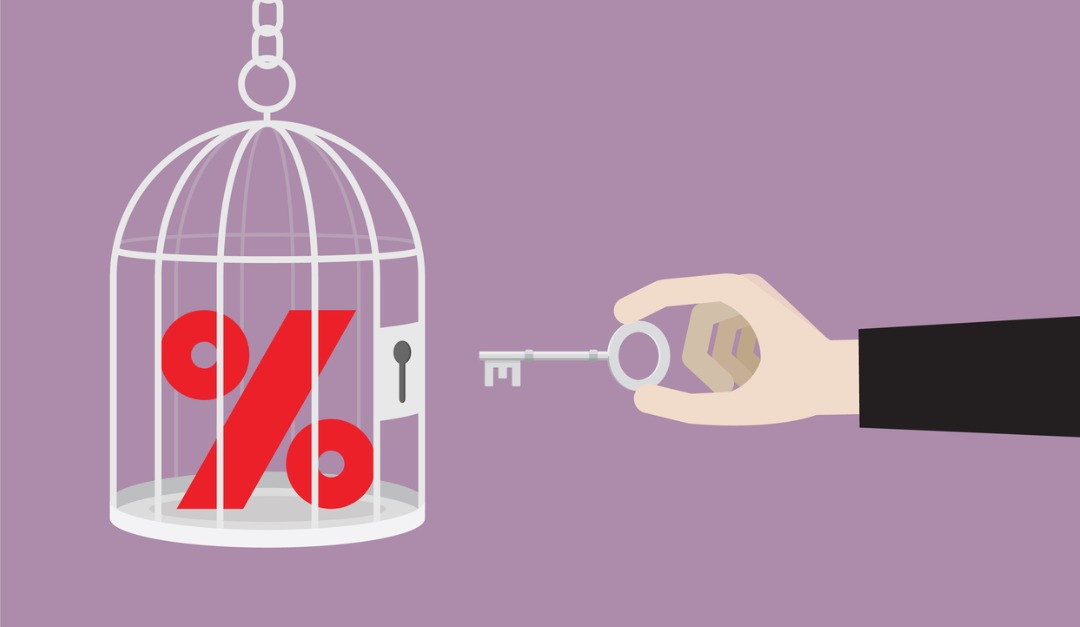Interest rates can go up or down on a daily basis. If you’re planning to buy a home or refinance your mortgage, locking or floating the interest rate may help you save money over the term of the loan.
Rate Lock
Locking an interest rate can protect you from market fluctuations. If you choose a rate lock, your lender will honor the current interest rate for a period of time, usually 30 or 60 days.
If interest rates go up during that time, in most cases, you will still be eligible for your locked-in rate. If you lock in a rate and the rates drop, you will most likely be stuck with the rate you locked in. If you decide to apply for a different type of mortgage than you initially chose, if your credit score changes or if the house appraises for more or less than you expected, that may affect the rate lock.
Locking in an interest rate does not mean that you are required to take out a mortgage through that lender. You can walk away if you find a lower rate elsewhere, but you may have to forfeit any fees you paid to lock in the rate.
A float-down option can be included in a rate lock so you can be eligible for a lower interest rate if rates fall between now and when you close on your mortgage. A lender may charge a higher fee for a float-down than for a standard rate lock.
Lenders typically offer several interest rates for borrowers with different credit scores. Before you choose a float-down, make sure you know how the lender will decide which rate you are eligible for.
With a float-down, you may only qualify for a lower interest rate if it is a specific amount below your original rate. If rates will have to fall substantially for you to have a shot at a lower rate, you may decide that it’s not worth it to pay the extra fee. If you choose a float-down and lock in a lower rate, you won’t be able to get an even lower rate if interest rates drop again before you close on your mortgage.
Floating an Interest Rate
Floating an interest rate means not locking it in. If you decide to float the interest rate, you may wind up with a rate that is higher or lower than the one that was available when you applied for a loan. That may be risky since interest rates can be volatile.
Which Option Should You Choose?
Choosing a float-down may be a smart move if you think interest rates may go down significantly. Floating the interest rate may make sense if rates are following a general downward trend. The fees associated with each option may vary from one lender to another.










